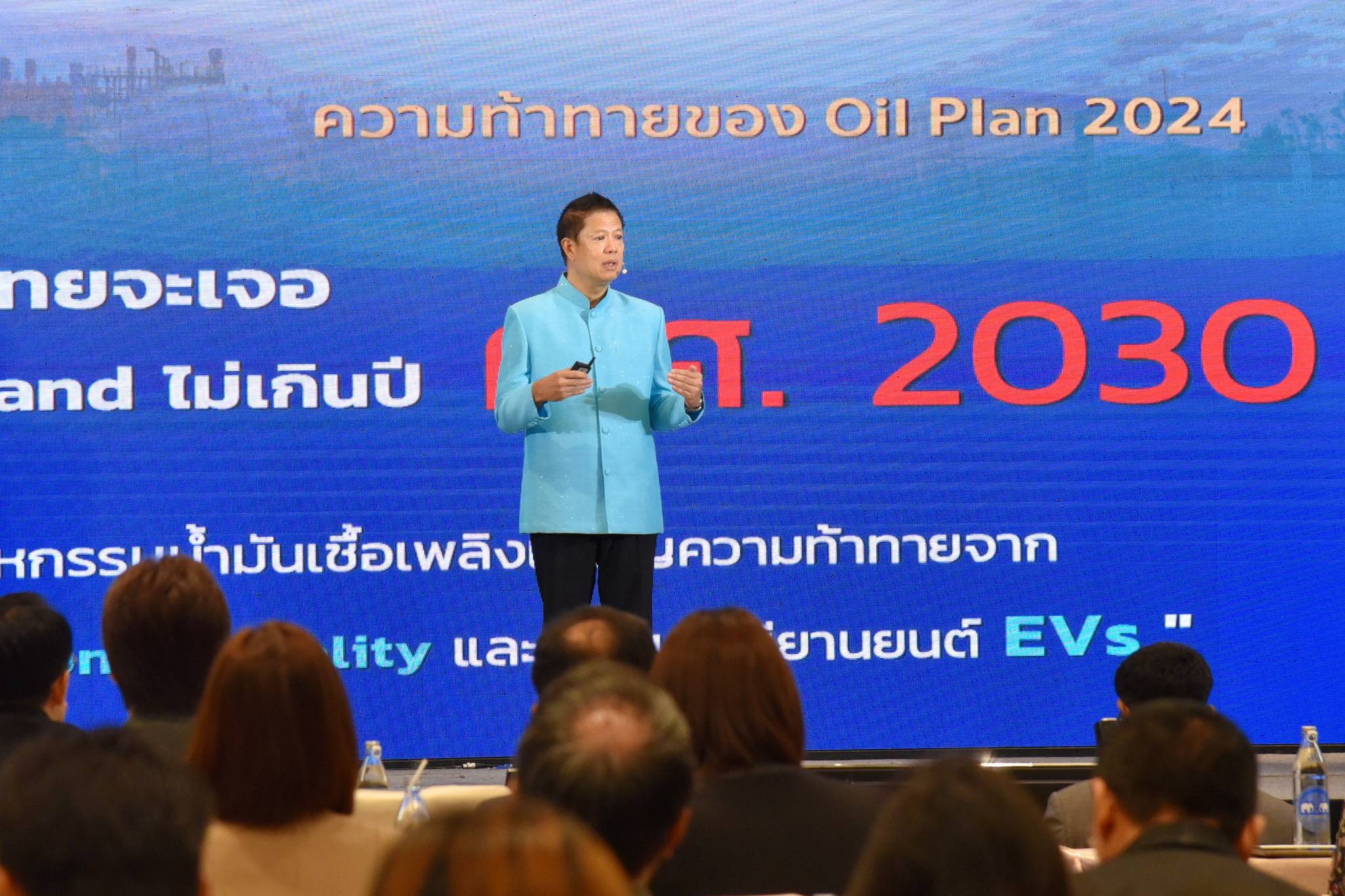3 Strategies Introduced to Support Ethanol Producers After the Energy Ministry Advances Oil Plan 2024 to Reduce Domestic Oil Types.
The Energy Ministry has outlined 3 strategies to accommodate surplus ethanol in the future, following the advancement of Oil Plan 2024, which reduces gasoline types to 2 categories: basic gasoline and alternative fuels. The strategies include utilizing surplus ethanol for Sustainable Aviation Fuel (SAF), using ethanol in Bio-Ethylene production, and employing ethanol in industrial-grade applications. The Excise Department is expected to lift restrictions to allow for the unrestricted production of ethanol by 2025.
According to the Energy News Center (ENC), the Biofuels Fund Act B.E. 2562 stipulates that the fund must cease compensating for biofuel prices by September 24, 2024. (An extension of up to 2 years is possible, which would extend the deadline to September 24, 2026.) This means that the fund will no longer be able to support domestic fuel prices. This is significant because gasoline and diesel fuels in Thailand all contain bioenergy components, such as ethanol and pure palm oil, making them entirely biofuels.
Therefore, once the “biofuel price compensation elimination measure” deadline is reached, retail fuel prices will follow global market mechanisms. In anticipation of this, the Energy Ministry is reducing the types of fuels sold domestically. Currently, Thailand sells 5 types of gasoline and 2 types of diesel. This reduction in fuel types will undoubtedly impact ethanol and pure palm oil producers in the future.
However, the drafted “Fuel Management Plan B.E. 2567-2580 (Oil Plan 2024)” outlines the future direction for managing ethanol in Thailand. The Energy Ministry plans to reduce the types of gasoline to just 2 categories: basic national gasoline and alternative fuels. Currently, there is a decision pending on whether to designate E20 Gasohol or 95 Gasohol as the basic gasoline type. This decision will directly impact the amount of ethanol used in the country.

Currently, Thailand uses 3.54 million liters of ethanol per day:
1. If E20 Gasohol is designated as the basic gasoline type, ethanol consumption is projected to increase to 4.72 million liters per day by 2027. This would then gradually decrease to 4.42 million liters per day by 2032, and further to 3.25 million liters per day by 2037, due to the global and domestic shift towards electric vehicles (EVs). However, the advantage of this scenario is a faster reduction in carbon dioxide (CO2) emissions. Currently, CO2 emissions are 21.6 million tons per year, and this is expected to decrease to 11.13 million tons per year by 2037.
2. If 95 E10 Gasohol is designated as the basic gasoline type, ethanol usage will decline rapidly. This is because 95 E10 Gasohol contains only 10% ethanol per liter, compared to E20 Gasohol, which contains 20% ethanol per liter. Under this scenario, current ethanol use of 3.54 million liters per day would drop to 2.73 million liters per day by 2027. It would further decrease to 2.37 million liters per day by 2032, and by the end of the plan in 2037, ethanol consumption would be reduced to just 1.55 million liters per day. Meanwhile, CO2 emissions, currently at 21.6 million tons per year, would decrease to 12.25 million tons per year by 2037.
Given the future projections for ethanol usage, the Energy Ministry has outlined in the Oil Plan 2024 that Thailand needs to restructure the ethanol industry and its related sectors to enhance long-term competitiveness. The plan includes 1. utilizing ethanol for industrial-grade applications, with the Excise Department expected to lift restrictions to allow unrestricted ethanol production by 2025.
3. Utilizing ethanol in Sustainable Aviation Fuel (SAF) with AtJ (Alcohol-to-Jet) technology, is expected to begin production and be available from 2030. The target ethanol blend ratios in SAF are 3% ethanol from 2030 to 2032, 5% ethanol from 2033 to 2035 and 8% ethanol from 2036 onwards, and 3. Utilizing ethanol in Bio-Ethylene, as part of the maximum production capacity of the New Green Ethylene Plant project by SCG in collaboration with Braskem.
These strategies are based on the assumption that the 28 existing ethanol plants, with a total production capacity of 6.6 million liters per day, will not increase their production capacity.
Regarding pure palm oil used in diesel fuel, the Energy Ministry is working to promote its use in the consumer sector and to add value by transforming it into massage oil and other products. Currently, the diesel fuel category has been reduced to just 2 types: B7 Biodiesel which is the basic national diesel, containing 6.6-7% pure palm oil per liter, and B20 Biodiesel, which is the alternative diesel fuel. These changes have been in effect since May 1, 2024.




